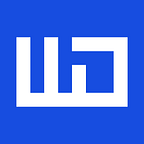Tech shield: Exploring Breakthroughs in Digital Security
By Community Coordinators
On 22 September, Hacks/Hackers Africa invited tech expert Samaila Atsen Bako and Feedshield ambassador Sarah Gowon, to lead the virtual session on Technological developments and its role in enhancing digital security.
Surrounded by an audience of seven, Samaila took the audience through the basics of digital security. He began by explaining that digital security goes beyond the creation of strong passwords. Digital security encompasses various factors from prioritising 2-factor authentication in your digital spaces to practising extra vigilance when navigating the digital space. Extra vigilance extends to keeping track of data privacy developments, cyber attack developments, and antivirus software updates. According to Samaila, these are just a few of the ways that one can protect themselves against unwanted digital security threats.
What anyone online needs to know, says Samaila, is that when new digital security developments or upgrades are introduced, the “hackers” are probably a few steps ahead and have come up with ways to breach these developments. However, this statement should not deter anyone from taking extra precautions, and doing their part to protect themselves against identity theft, fraud, or any unwanted digital security breaches. He specifically cautioned the audience against a virus called ransomware which threatens to publish one’s personal information or block access to it unless a ransom is paid.
Digital security breaches can happen via sms, email, through “free” online subscriptions and recruitment processes. In this digital age, security breaches have even extended to “fishing” in social networks such as Whatsapp, Instagram and Facebook where people are deceived into sharing sensitive information.
Samaila shared with the audience that online attacks are a nightmare for organisations who work online as sensitive information is shared in a cloud, which if hacked can be detrimental to the organisation, the staff and clients. This is why organisations are targeted, because they have a lot to lose if sensitive information is hacked. There is intellectual property, there’s personal information, this is why companies need to structure their data carefully as central servers can get infected. Once infected, ‘it is very difficult to disinfect a cloud’. Therefore, remote companies need to be careful and train their staff on digital security habits, especially with shared clouds.
The session then took a less technical route when Sarah Gowon demonstrated Feedshield to the audience. She took the audience through the application, designed to help users deal with cyber harassment. She explained how users can download reports as proof of cyber harassment, to submit to the platform they are being harassed on. This is another way in which users can enhance their digital security in social spaces.
Some great takeaways shared by the panellists include advising the audience to stream or engage online with anti malware. The audience was told to beware of data privacy attacks by ‘reading up on developments’. And to be careful of websites providing “free” downloadable content. This is in addition to arming oneself with all the digital security hacks shared throughout the session.
The worlds of hackers and journalists are coming together, as reporting goes digital and Internet companies become media empires.Journalists call themselves “hacks,” someone who can churn out words in any situation. Hackers use the digital equivalent of duct tape to whip out code.
Hacker-journalists try to bridge the two worlds. Hacks/Hackers Africa aims to bring all these people together — those who are working to help people make sense of our world. It’s for hackers exploring technologies to filter and visualise information, and for journalists who use technology to find and tell stories. In the age of information overload and collapse of traditional business models for legacy media, their work has become even more crucial.
Code for Africa, the continent’s largest #OpenData and civic technology initiative, recognises this and is spearheading the establishment of a network of HacksHackers chapters across Africa to help bring together pioneers for collaborative projects and new ventures.
Follow Hacks/Hackers Africa on Twitter and Facebook and join the Hacks/Hackers community group today.
